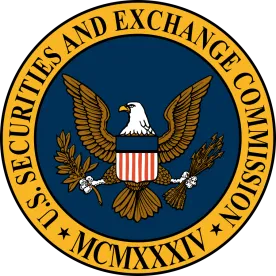On March 3, 2020, the Supreme Court heard arguments in the case of Liu v. SEC, No. 18-1501. This article summarizes what transpired at the hearing, in which the arguments centered on a challenge to the ability of the U.S. Securities and Exchange Commission (“SEC”) to obtain disgorgement as an “equitable remedy” for securities law violations.
During the oral arguments, the Justices’ questions indicated that they appeared reluctant to entirely do away with disgorgement, but rather their queries focused on whether limitations should be placed on the SEC’s continuing use of disgorgement as an equitable remedy. Specifically, the Justices expressed interest in exploring parameters and limitations regarding how disgorgement is calculated and whether the SEC or defrauded investors are entitled to any disgorged funds.
By way of background, this case arose from an investment fund operated by petitioners Charles Liu and Xin Wang which raised nearly $27 million from foreign nationals seeking to qualify for U.S. immigrant visas by investing in U.S. businesses. According to the SEC, the petitioners did not use the invested funds on a cancer treatment center in California as represented, but instead diverted funds to their own accounts and improperly misappropriated and spent the rest. As a result of the SEC’s investigation, the Division of Enforcement filed a lawsuit in U.S. District Court. The Court ultimately ordered petitioners to disgorge roughly $19 million pursuant to Section 21(d) of the Securities Exchange Act of 1934—which provides for “any equitable relief that may be appropriate or necessary” as a potential remedy available to the SEC in enforcement actions in federal court. The Ninth Circuit affirmed, citing longstanding precedent authorizing disgorgement. Petitioners Liu and Wang then petitioned the Supreme Court for review.
Petitioners opened oral arguments by citing the Supreme Court’s unanimous decision in Kokesh v. SEC, which held that disgorgement as a remedy in the context of an administrative proceeding constituted a “penalty,” which must be expressly authorized by statute. Petitioners further argued that while disgorgement to the SEC is expressly authorized by statute in the context of administrative proceedings, no such express authorization is included in Section 21(d), which governs remedies in federal courts. Therefore, petitioners argued, this section’s authorization of “equitable relief” cannot be construed to encompass disgorgement in federal court actions. Countering these arguments, the SEC argued that disgorgement has long been understood as an “equitable” remedy, whether or not it is a punitive, and is thus plainly available under Section 21(d)’s authorization of “any equitable relief.”
The Justices’ questions did not primarily focus on whether disgorgement was permitted. Rather, it focused on two potential ways to limit disgorgement that could tailor it more closely to traditional bounds of equitable relief. The first proposed limitation was to limit disgorgement to net profits and not the gross receipts obtained by a defendant. Counsel for the parties answered the Justices’ questions about whether, under this limitation, the SEC’s costs in pursuing the action were more appropriately calculated from the gains to the defendant or the losses to the investors. The second proposed limitation was to designate victors/investors as the sole beneficiaries of disgorged funds, thereby preventing the SEC to retain them. Arguments from counsel on this limitation focused on the feasibility of policing compliance with a requirement that disgorged funds be returned to victims.
It is always difficult to predict how the Supreme Court will rule in any case. However, the Justices’ questions during oral argument indicates they believe that disgorgement is a permitted equitable remedy in SEC enforcement actions in federal court, but that it should be subject to certain limitations. This is something of a surprise for many legal commentators who predicted that the Supreme Court’s holding in Kokesh, which categorized disgorgement as a penalty in the administrative context, would be incompatible with a finding that disgorgement in the federal court context was an equitable remedy. However, the justices appeared willing to accept disgorgement as a remedy if funds were returned to defrauded investors and if the disgorgement orders were limited to net profits. Should the Supreme Court issue such a ruling, several practical challenges may result. First, it may be difficult for the courts to police the SEC to ensure that it returns funds to defrauded investors, particularly when the SEC asserts that such a return would be unfeasible because, for example of the resulting administrative costs. Second, requiring a disgorgement order to be limited to net profits may lead to costly fact-intensive analyses and perhaps the need for expert analyses on both sides. Regardless of how the Supreme Court may rule, the hearing and queries posed indicate that more structure may be forthcoming regarding the SEC disgorgement remedy.






 />i
/>i
